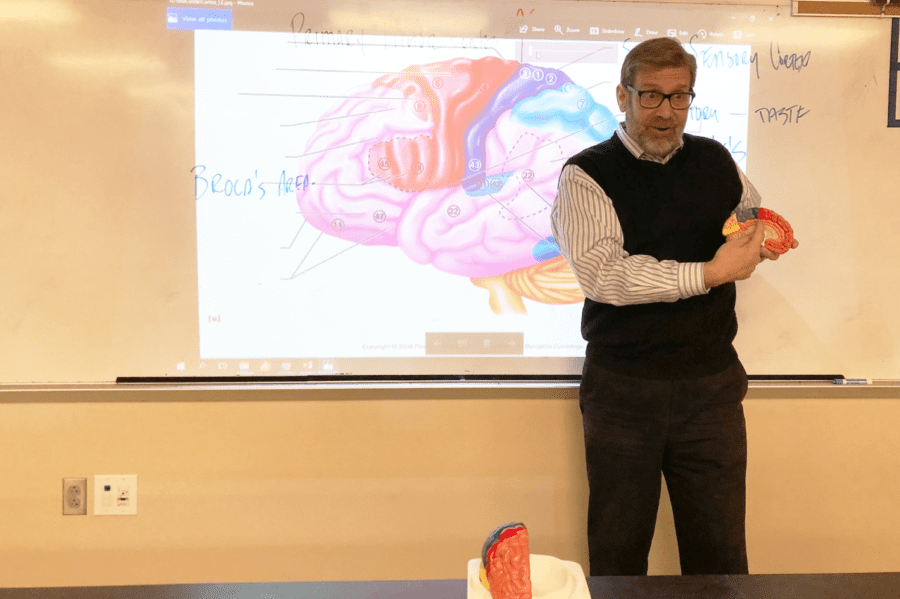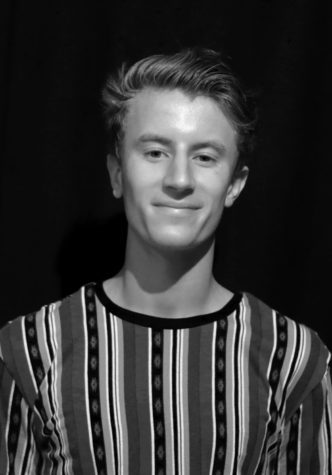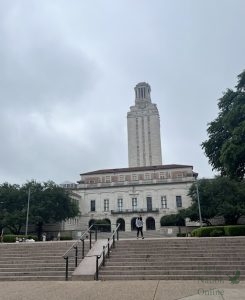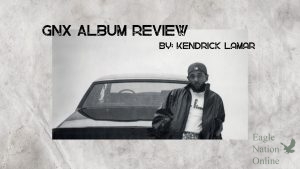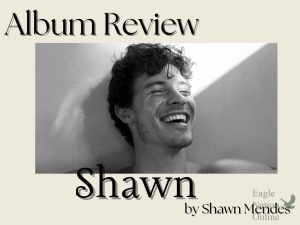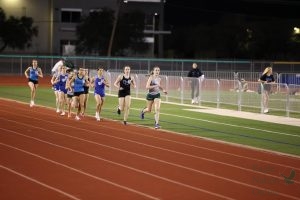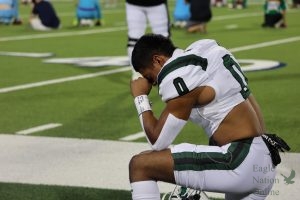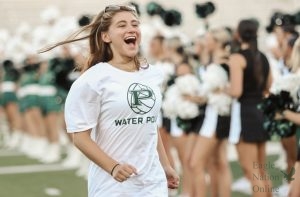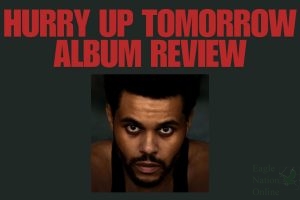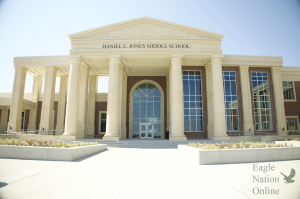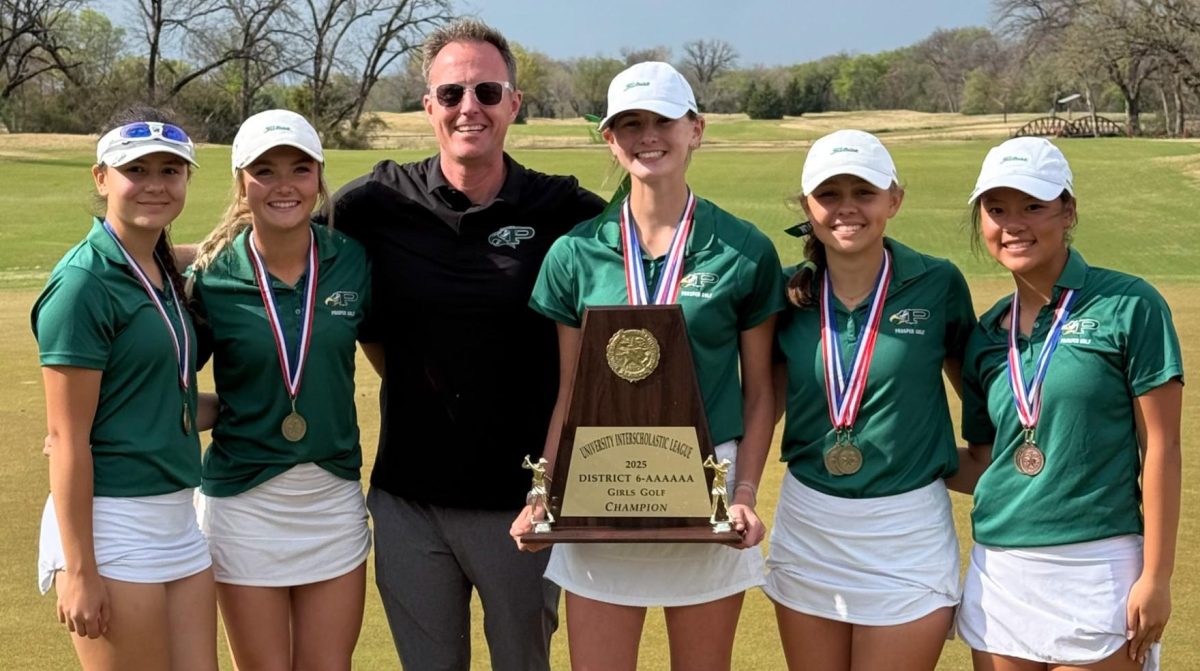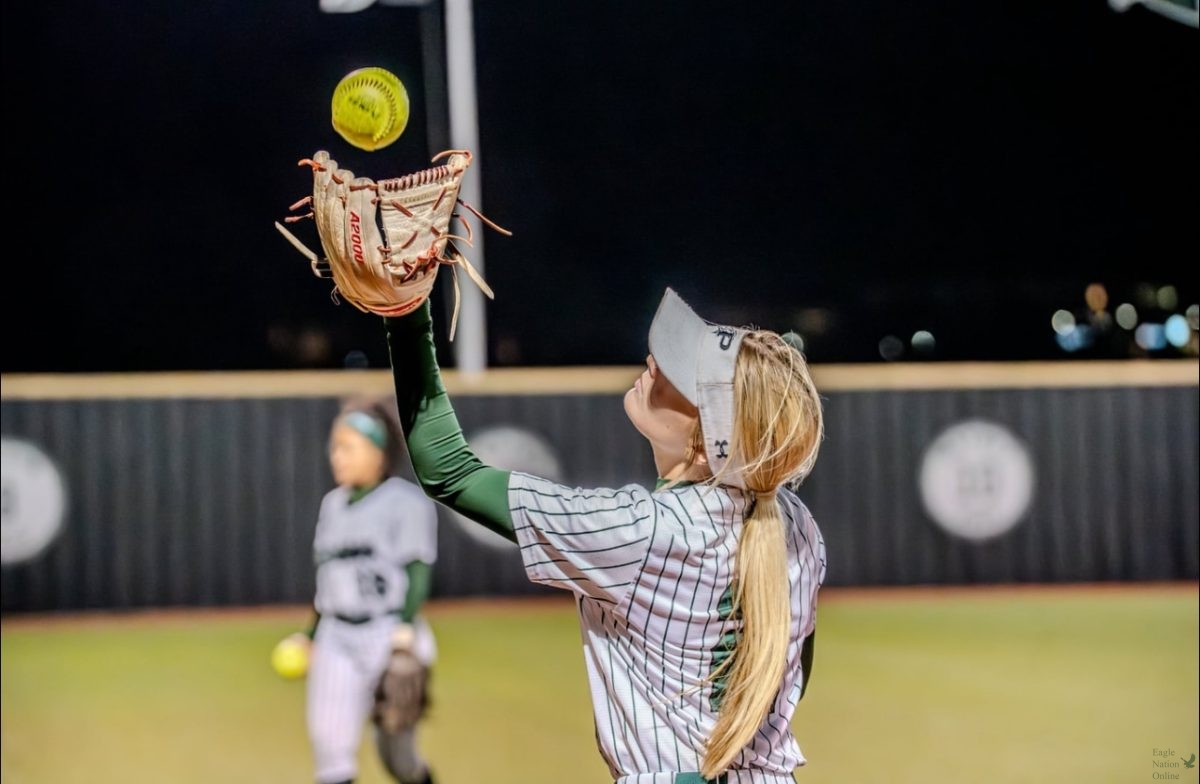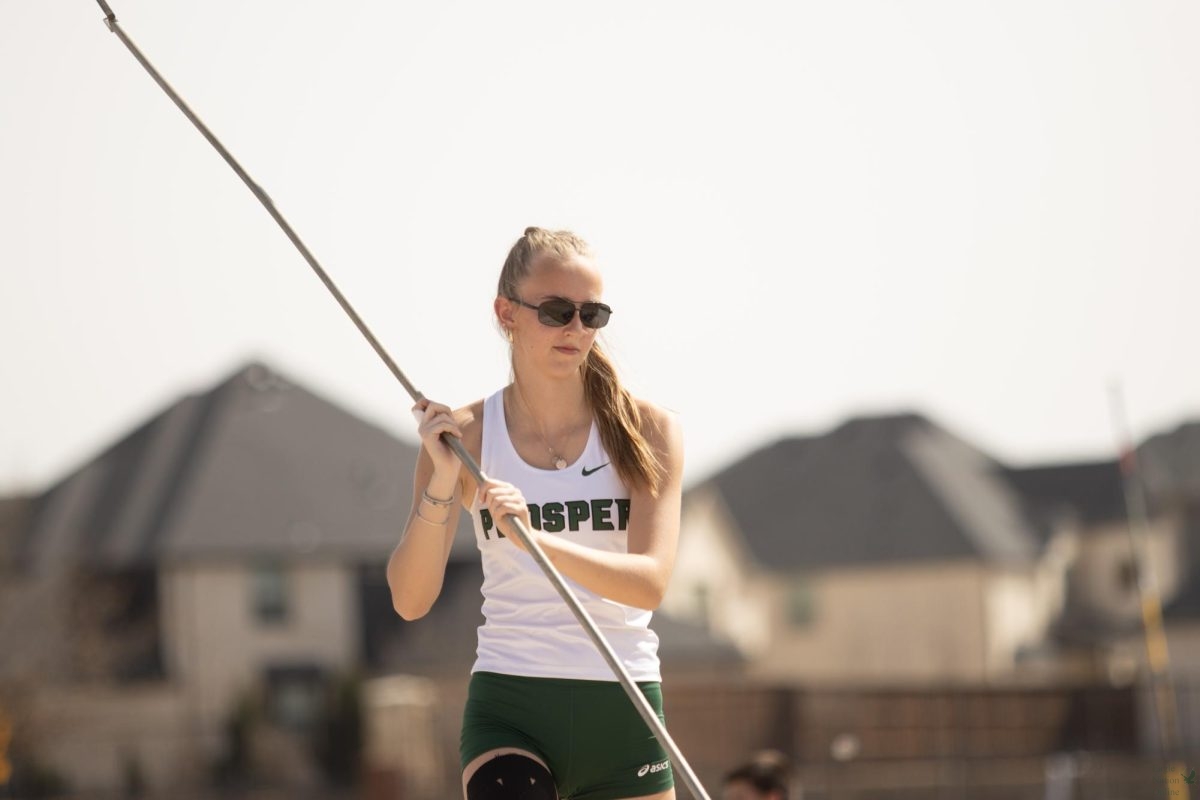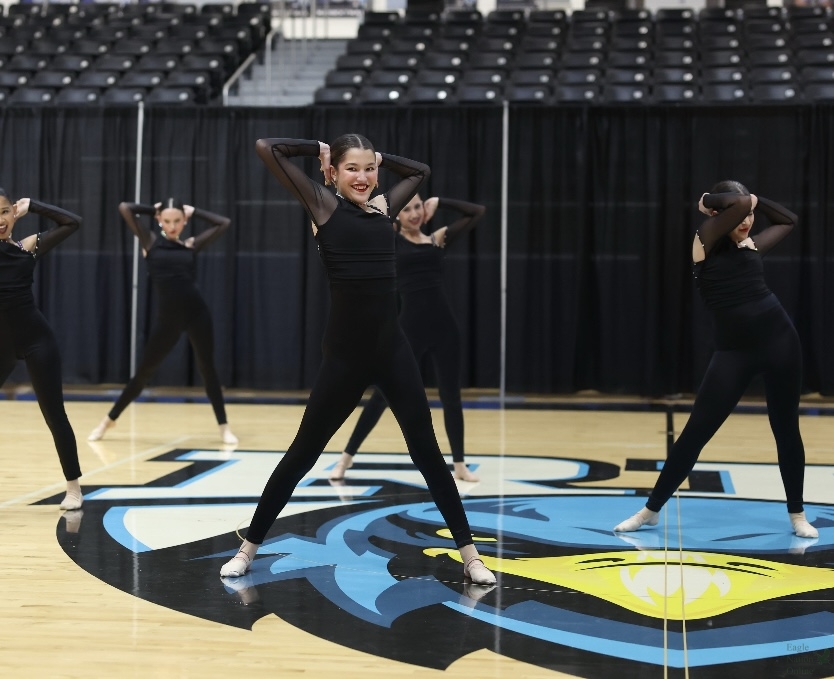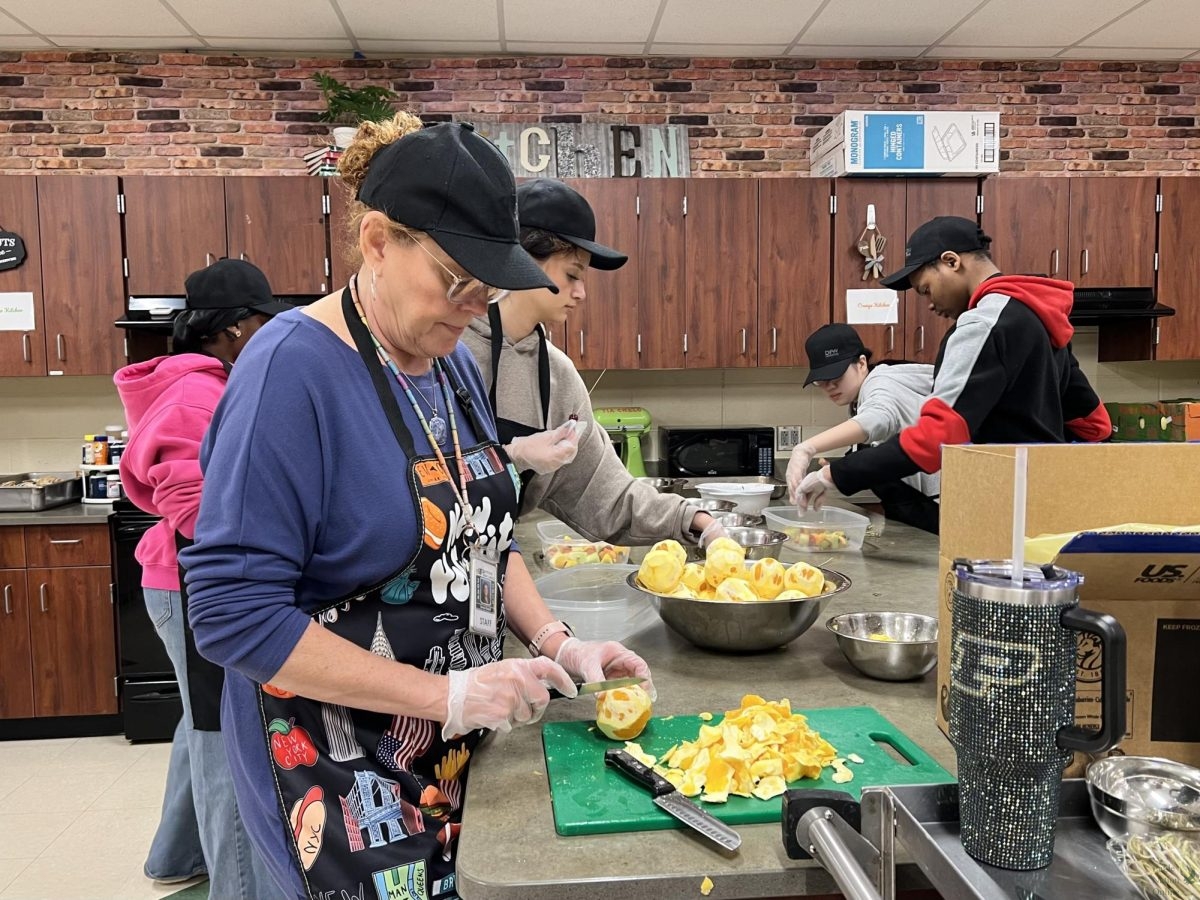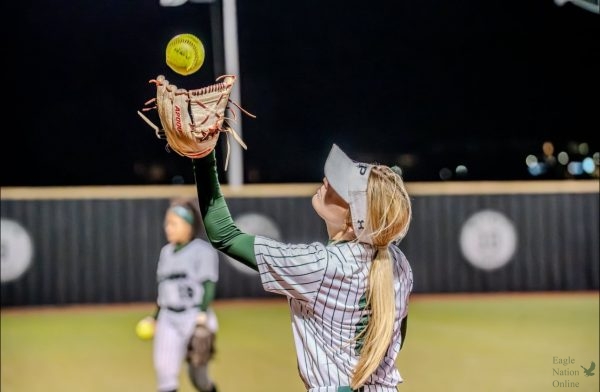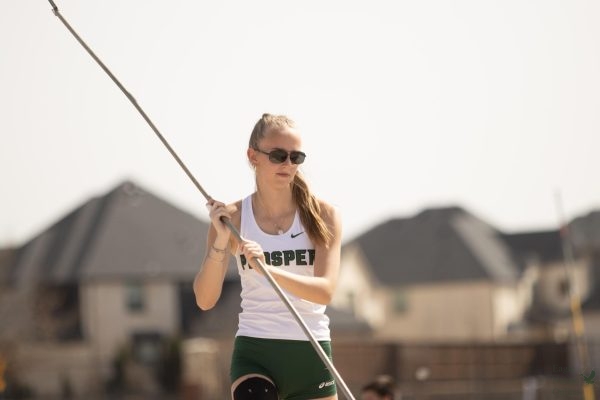From one extreme to the next – Teacher reflects on military background
Teacher John Floyd lectures a class on Nov. 27. Floyd teaches anatomy and physiology. “I get passionate about things, and I found that the things that I talked about in class, I was passionate about,” Floyd said. “The study of life, the study of the human body, how life works. All that stuff together, that’s easy to get passionate about. I’ve had a blast with it.”
December 12, 2018
From the deserts of the Middle East to high school classrooms, anatomy teacher and former military member John Floyd has gone from one extreme to the next.
Floyd served for 15 years and comes from a background of service. He started as an Intelligence Officer with the XVIII Airborne Corps, but later switched into Special Operation Forces.
“I always had a very positive feeling for the army and for service,” Floyd said. “That’s the way I was raised. It’s a family thing of being a good citizen and when called on by the country you did what you needed to do.”
Floyd’s family has a vast history of service, which implemented a sense of duty in him.
“My father was involved in the military for a few years,” Floyd said. “My grandfather had been in the military during the world wars. Service to the country, I think, is something that you’re taught and something that you appreciate.”
Floyd’s first assignment was with the 101st Airborne and was recruited for Special Operations once he was promoted to captain, but faced rigorous training.
“The training involved a lot of physical activity, but also there was a lot of mental training,” Floyd said. “There was also leadership training. Making sure that I had the kind of relationship with my team, that if I said ‘guys we need to go do such and such’, they’ll be with me.”
Floyd said he faced combat in skirmishes, but on a larger scale during the Gulf War, in the early 1990s.
“The large conflict I was a part of was initially Desert Shield, and then Desert Storm,” Floyd said. “My team was part of the group that is still on record doing the largest troop-sized air assault deep in enemy territory ever on record.”
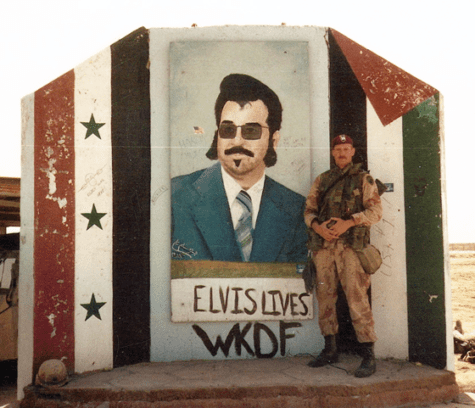
John Floyd stands in front of an image of Saddam Hussein during the Gulf War in the early 1990s. Soldiers repainted the former Iraqi President to look like famous singer Elvis Presley.
While dealing with a difficult situation as a liaison officer, Floyd said he learned an impactful lesson from his Egyptian counterpart.
“We had a very difficult situation we were going into, and we were going to have to do a lot of negotiating,” Floyd said. “The Egyptian liaison officer said ‘the most important thing you need to do when we first go in, is to make sure they’re comfortable sitting beside you.’ I took that on into business through the years.”
Floyd’s final rank was “Captain Promotable,” meaning he had a number and position to be promoted to major.
“I had made captain early, and I was a little early for major,” Floyd said. “But, there were some other commitments at the time because of political situations. I didn’t want to commit.”
After the military, Floyd worked in business, and his decision to become a teacher was influenced by an associate.
“I wasn’t happy with some of the talent that I was getting to see, and he (an associate) said ‘why don’t you make a difference,’” Floyd said. “I reached a point when I was looking to see how would I make the most impact with my life. That message kept coming back to me. It was a calling.”
Floyd knew from the first day of teaching that it was what he wanted to do.
“I get passionate about things, and I found that the things that I talked about in class, I was passionate about,” Floyd said. “The study of life, the study of the human body, how life works. All that stuff together, that’s easy to get passionate about. I’ve had a blast with it.”
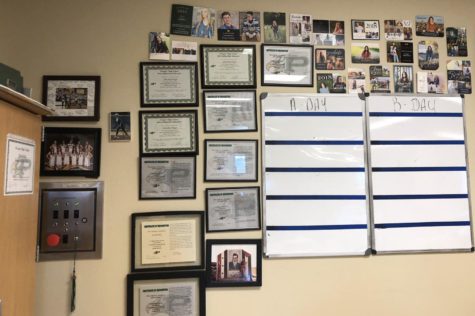
On the wall in his classroom, Floyd has an array of photos. They include certificates and pictures of students. “See those pictures on the wall,” Floyd said. “Those are favorite moments. The lives that those pictures represent. There’s too much. There’s too much to be able to pick because it all just throbs with excitement for me.”
Senior Gavin Hopkins said Floyd not only teaches the material, but also life values.
“He has great respect for his students,” Hopkins said. “He doesn’t teach to just teach the lesson. He teaches because he wants to reach students, and he’s passionate about what he’s doing.”
Assistant Principal John Boehringer, who met Floyd nine years ago when they both came to the district, said Floyd prepares students for the next level.
“Mr. Floyd has always had a passion for pushing the anatomy program to make it a truly advanced science,” Boehringer said. “I’ve always appreciated the rigor and the challenge, but also the support for his students that Mr. Floyd brings to the classroom. Those two things, if you put them together, typically makes a great teacher.”
Hopkins, whose father served in the military, said he understands the extent of the sacrifice Floyd gave.
“I think his service is more of a sacrifice,” Hopkins said. “He sacrificed part of himself. He gave to his country. I think his service is one of the greatest sacrifices you can give to another person. He’s doing everything selflessly. I think the service that he’s doing now as a teacher is selfless.”
Through his experiences in the military, Floyd said he has learned lessons he now applies to teaching and everyday life.
“Understanding respect and that everybody has a job to do,” Floyd said. “It doesn’t mean somebody is better than someone else, or more important. Corporately, from the custodians to the AP’s, to the other teachers, we all have a job to do. All of that, I think, prepares me to be the kind of teacher I need to be.”



